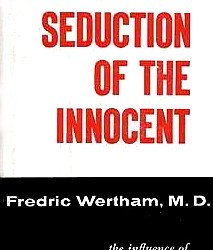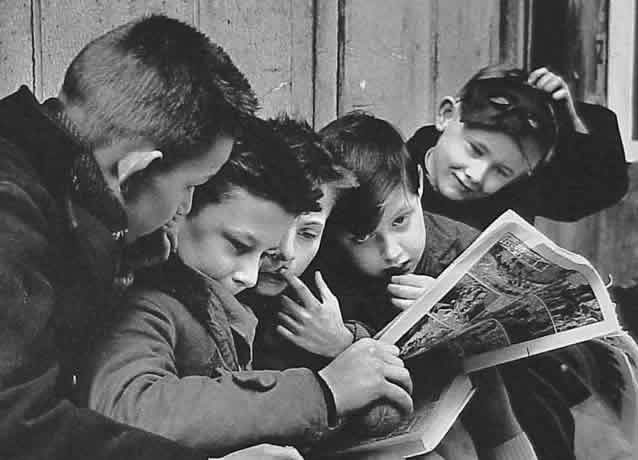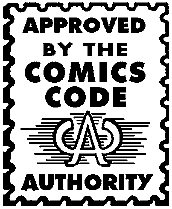the Lottery Party: Swapping the Slum-Boogie

I think compelling creative minds to pursue commercial work instead of allowing them the means to pursue their own personal courses is another form of censorship.
Creative Industry is oxymoronic doublespeak. I think commerce and art are polar opposites, and when Art was relegated to the mere role of entertainment was when the world began its stumble into irreparable territory. The number of creative types who have honestly lived very comfortably from their efforts, compared to the vastly more sizable numbers of writers, artists and filmmakers and musicians and the like who most certainly have not and will not, is perplexing and offensive all at once. But why does that illusion persist, that any creative work can pay the bills while also being aesthetically rewarding? Ignorance? Fear, of the unknown or otherwise? If we as creators stay unfed then we can bite any hand we want though.

Public Domain photo of kids being super, courtesy of First Second Books.
Creativity keeps the whole world healthy. Art unhindered gave us culture and religion, and everything else that positively defines our species. To lack creative ability or aesthetic is synonymous with soullessness. If real Art is not fostered for its own highest potential, but instead limited to selling products so that men in suits and ties can add to their private riches, then Art is bastardized and in the doing our collective growth- beit psychologically, spiritually, or culturally – is stunted and perverted. When we limit the arts, we limit ourselves.
How dare the greatest examples of our species be cast as slaves like so.
There’s a part of me that wants to see crowd-funding as the definitive new model for self-publishing, economy be damned. I’ve tried to make those concepts of “crowd-funding” and “self-publishing” as synonymous as possible in my times of comics journo hackery, to mixed but generally lackluster results. I do see something decidedly anti-Capitalist in boycotting the larger publishers and instead financially supporting small press, the micro-publishers and vanity publishers and passionate hobbyists. Which I think is a form of Economic democracy.
But even with the overall ebb and flow of the economy and the death-grip unbridled Capitalism has over all things, I wonder if taking the crowd-funding/self-publishing dynamic even further might be a fundamentally inevitable step, a la initiating Consumer cooperatives.
Which I think would also mean developing better grassroots distro (distribution) models, uniting retailers, etc. Selling self-published works in like-minded industries, like record stores and tattoo parlors and skate shoppes, etc. But it’s necessary, as fighting monopolies and enabling diversity are already synonymous acts. Any system is only as strong as its weakest link, so for creators (and through them their industry as a whole) to be enabled to do their own thing, to stay healthy and productive then it is the little guys who need the most active support – and not the groups owned by parent companies more interested in the “industry” half of the “creative industry” oxymoron. And there are always ulterior motives when Industry is calling the shots, motives that without fail are aimed exclusively at putting the almighty dollar above all else, whether the Art itself, or the life that creates it. Take Fredric Wertham and his book Seduction of the Innocent for example.

Control is censorship.
The real problem with Fredric Wertham is that he was a patriot. There was a statistical surge in juvenile delinquency in the 1940s and 50s, but it had jack to do with comic books. It was because of World War 2. Finding a scapegoat was far more politically correct than calling a spade a spade, but the truth is that the war easily created millions of broken homes. From fathers who came home from overseas wounded (physically or otherwise) to fathers who did not return at all. That is why youth (particularly boys) were acting up and acting out. There is a spike in youth crime following every war in history, but as that was the largest its effects were also the most wide-scale and enduring. And there is a nationalism streak following any war that can take years to dust off properly, so blaming anything else was more than welcome. Evidently, even if the circumstances are a matter of protecting a diseased status quo at the expense of silencing an entire creative medium. Again, hindering Art in any manner is the definition of censorship. And in Wertham’s case, for what exactly? In support of the wholly uncreative military industrial complex?
Art gave us our religions, our cultures. Artists need to feel empowered, because the magic they create is thousands of years older than industry, and will outlive the money-men. Everything, without exception, everything beautiful or otherwise worthwhile to do with the world is related to Art. (I consider non-reproductive sex to be the first Art.) I do not believe in the soul as a thing unto itself, but I cannot help but to see the soullessness in all things lacking any degree of creativity. I burn candles for Art. Comic books may well be the bastard red-haired stepchild of the creative mediums, but it has always drawn to itself the black sheep and underdogs and dark horses, from creators to fans, and I feel it is the most personal of any art-form. The earliest decades of comics were crafted by minorities, by Jews and blacks and women and homosexuals, and their audience in turn were over-looked persons, the immigrants, the children, the rejects. We can share music together in crowds, watch films in theaters, attend poetry readings, etc., but to take in the work of a comic is an individual thing, and that connection made by the sharing of ideas is goddamn lovely. I hate the comics industry in so many ways, but I cannot imagine that a world without comics, without Art of any variety, would be outside of the established circles of Hell.
Are we not close enough to that in the real world today?
So let’s look ahead, reactionary group-think though we increasingly fall victim to, and let us collectively find alternatives that might lessen the load for such stellar agencies as the Hero Initiative or the Sidekick Foundation. Let us bring back true patronage, and let us give creative minds the space to construct a better future for all of us. And not just in terms of the creative spheres, but in all matters of life let our feeble resources reward those who daringly explore the fading virtues of Imagination, Ingenuity, Integrity, Individuality, and Intelligence. What possible harm might promoting virtues add to any equation? And how much more engaging might our four-color reading materials become with less of the same-old, same-old, and more of the stuff that comes from the heart and soul?
This essay is © 2014 Richard Caldwell. All rights reserved.

Nice one, Richard.
I think the way you end up at Wertham is a bit…let’s say complicated, but definitely food for thought.
I don’t think so, when you consider that through time immemorial all armies have existed primarily, if not exclusively, for the accumulation of wealth. Wertham was essentially white-washing for that cause, at the expense of creative individuals.
I didn’t mean the bit about his motivation, it was about how you got from the dichotomy between art and commerce to Wertham.